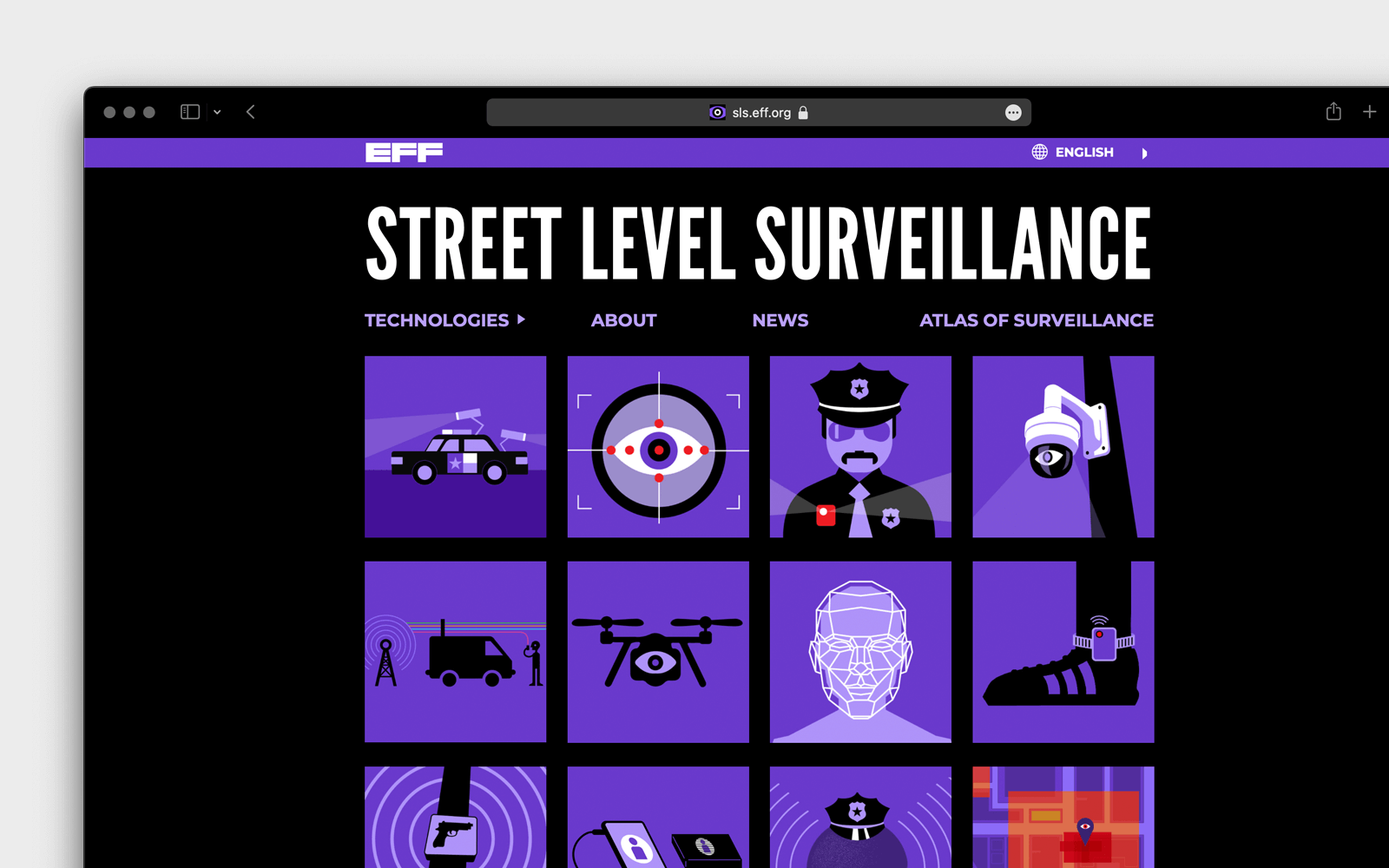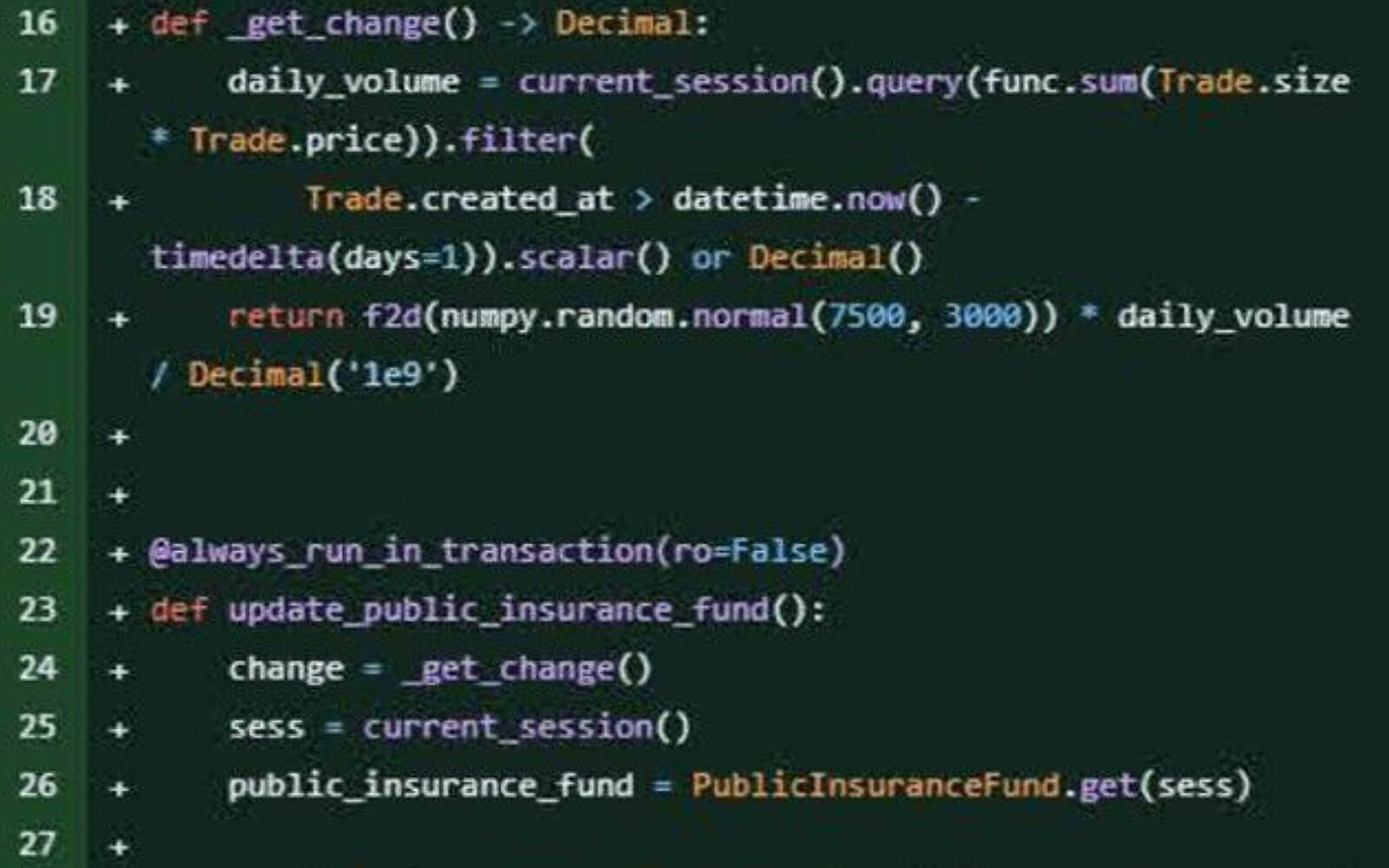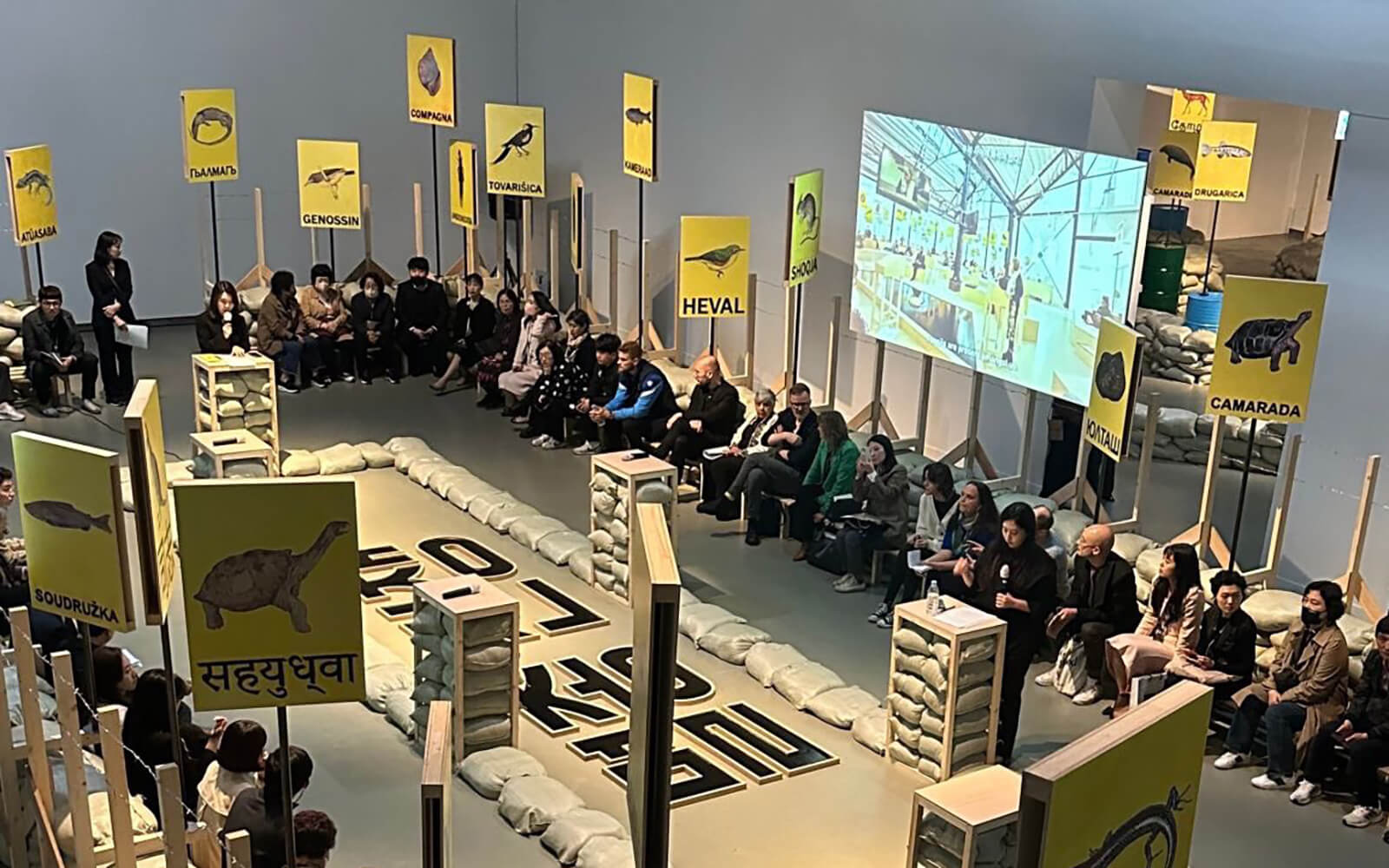1,570 days, 2,407 entries ...
Newsticker, link list, time machine: HOLO.mg/stream logs emerging trajectories in art, science, technology, and culture––every day
“Our challenge has been to find a way to disrupt this banality visually, to reframe the material landscapes of surveillance in ways that pull this infrastructure back into focus.”
“I wanted to have you on and Apple asked us not to do it. They literally said, ‘Please don’t talk to her.’ Like, what is that sensitivity? Why are they so afraid to even have these conversations out in the public sphere?”
“Apple selectively restricts access to the points of connection between third-party apps and the iPhone’s operating system, degrading the functionality of non-Apple apps and accessories.”
D’Souza & Staal (eds)
Court for Intergenerational Climate Crimes

The Electronic Frontier Foundation (EFF) launches the Street Level Surveillance Hub, a resource for learning about invasive technologies used by U.S. law enforcement. The website contains accessible intros to cell-site simulators, gunshot detection systems, predictive policing, and other troubling technologies, and identifies related civil liberties concerns. “Understanding this panopticon is the first step in protecting our rights,” says EFF Policy Analyst Matthew Guariglia.

In anticipation of the Steamboat Willey (1928) version of Mickey Mouse entering the public domain in 2024, Matthew Plummer-Fernández’ hack of the cultural icon, Every Mickey, resurfaces on X. First shown in 2015, at the British-Colombian artist’s solo show “Hard Copy” at NOME, Berlin, the 3D-printed composite of found 3D models “circumvents copyright by being a compilation,” Plummer-Fernández explains on X. Compilations constitute “an exception in copyright law for the creative compiling of other works.”

“Copyright only works above a certain threshold of importance. That’s something you learn as an artist. Your voice doesn’t matter.”
At the New York trial of disgraced FTX CEO Sam Bankman-Fried, co-founder Gary Wang testifies the crypto exchange used a random number generator to create fake daily deposit values for an ‘insurance fund’ to reassure investors. Calculated by taking an arbitrary number around 7,500 multiplied by the platform’s daily volume and divided by a billion, the greatly embellished fund “was intended to protect FTX and its customers from losses due to unprofitable liquidations,” says Web3 critic Molly White.

“If you’re driving under the influence you can have your license revoked. These are the kinds of measures we need to see.”
“As U.S. et al. v. Google goes to trial, the echoes of the landmark federal suit against Microsoft, a quarter-century ago, are unmistakable.”
“Today’s sentence should serve as a warning to other corporate insiders that insider trading—in any marketplace—will not be tolerated.”
Hearings begin at the Court for Intergenerational Climate Crimes (CICC): Extinction Wars at the Gwangju Museum of Art (KR). The Netherlands Pavilion at the 14th Gwangju Biennale, this second iteration of lawyer-activist Radha D’Souza and artist-researcher Jonas Staal’s CICC invites attendees to sit in as “prosecutors and witnesses from various social movements and activist organizations testify to the role of states and corporations in perpetuating climate war crimes” through April 9th.

“Quantum computers might one day have the ability to push computational boundaries, allowing us to solve problems that have been intractable thus far, such as integer factorization, which is important for encryption.”
Jonas Lund
By Opening This Book

Are the aesthetics of an immersive installation intellectual property? According to recently surfaced Los Angeles court documents the answer to that question is maybe. Spurned by similarities between a pair of their works and installations at the Museum of Dream Space (MODS) in Beverly Hills, teamLab are suing for copyright infringement. The prolific Japanese studio claims motifs from “Transcending Boundaries” (2017) and “Crystal” (2015), have been copied by exhibition designers at the American venue. The case may set an interesting legal precedent, as “streams of light and water cascading down the wall onto the ground” is not exactly ingenious—but immersive installations are big business now. Either a summary judgement will be issued in a few weeks, or the case heads to trial this summer.
“The science is now clear that decapods and cephalopods can feel pain and therefore it is only right they are covered by this vital piece of legislation.”
“This is the first major case of weaponizing personal data, shared by shady data brokers. I have been warning for years that there would be consequences for failing to protect Americans’ personal information.”
“We hope this will accelerate the transition towards more durable and repairable product design … it is crucial, both in terms of environmental and consumer protection, to be able to repair and keep devices for as long as possible.”
Daily discoveries at the nexus of art, science, technology, and culture: Get full access by becoming a HOLO Reader!
- Perspective: research, long-form analysis, and critical commentary
- Encounters: in-depth artist profiles and studio visits of pioneers and key innovators
- Stream: a timeline and news archive with 1,200+ entries and counting
- Edition: HOLO’s annual collector’s edition that captures the calendar year in print
